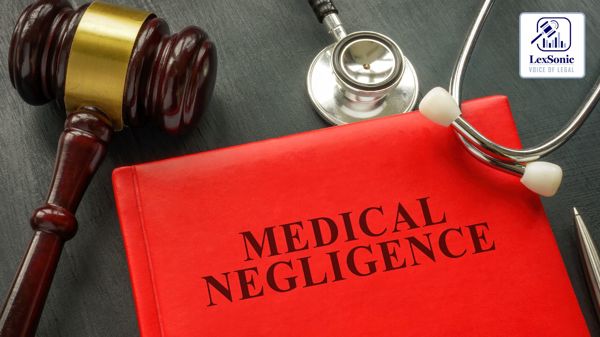Medical Negligence in Post-Operative Care: Supreme Court Restores Compensation for Cataract Patient.
19 December 2024
Medical Negligence >> Family Law
The Supreme Court, in a significant judgment, has reinstated a compensation award of Rs. 3.5 lakh for a cataract surgery patient who suffered irreversible damage to his eye due to alleged medical negligence. The decision came after a long legal battle that spanned over two decades, involving multiple forums and revisions.
Case Background:
The case revolves around a cataract surgery performed on the appellant, a resident of Lonavala, by an eye surgeon in Pune in January 1999. Following the operation, the patient experienced severe pain, headaches, and vision problems in the operated eye. Despite visiting the respondent-doctor multiple times for follow-up checkups, his complaints went unaddressed. The doctor reassured the patient on several occasions that the operation had been successful and that vision would eventually be restored. However, the condition worsened, and the patient was eventually diagnosed with endophthalmitis—a severe eye infection caused by bacterial contamination, often resulting in permanent vision loss if untreated.

The Legal Journey:
The patient filed a complaint in 2000 before the District Consumer Forum, alleging medical negligence by the respondent. However, the District Forum dismissed the case, stating that the appellant had failed to provide expert testimony to substantiate the claim. The appellant appealed the decision to the State Consumer Commission of Maharashtra, which, after reviewing the evidence, concluded that the respondent had failed to diagnose the infection in time, leading to the patient's condition deteriorating. The Commission ordered the respondent to pay Rs. 3.5 lakh as compensation.
Dissatisfied with the decision, both the appellant and respondent filed revision petitions before the National Consumer Disputes Redressal Commission (NCDRC) in 2016. The NCDRC sided with the respondent, ruling that the patient's injury was the result of self-inflicted trauma, specifically an improper bandage change. This decision effectively dismissed the appellant's complaint.
Supreme Court's Ruling:
Upon further appeal, the Supreme Court took a detailed look at the facts and medical opinions presented. The appellant's counsel argued that despite the patient’s repeated visits to the doctor, the infection was never diagnosed, which was a clear case of medical negligence. Additionally, the appellant emphasized the principle of res ipsa loquitur, suggesting that the facts of the case were sufficient to establish negligence without the need for further expert testimony.
The Supreme Court found that the NCDRC’s conclusions were flawed, particularly its finding that the appellant's self-administered bandage change led to the infection. The Court observed that the evidence provided by the respondent was not sufficient to substantiate this claim, as the case papers were produced at a later stage and contained contradictions. Moreover, the appellant had consistently complained of pain and vision loss, yet the respondent failed to take appropriate action despite several visits.
The Court also reviewed expert medical opinions, including one from Dr. Bivash Kumar Das, an ophthalmologist, who stated that pus discharge after cataract surgery is an indication of infection that requires immediate medical attention. The Court found that the failure to diagnose and treat the infection in time amounted to negligence on the part of the respondent.
In light of the findings, the Supreme Court restored the compensation order issued by the State Commission, directing the respondent to pay Rs. 3.5 lakh to the appellant's legal heirs. The Court also specified that if the compensation was not paid within two months, interest would accrue at a rate of 12% per annum.
Conclusion:
This judgment underscores the importance of post-operative care and timely diagnosis in medical procedures. The Court's decision to uphold the compensation award highlights the responsibility of healthcare providers to ensure proper treatment, follow-up, and monitoring of patients after surgeries. This case also serves as a reminder that patients have the right to expect competent and timely care from medical professionals, and any failure to do so may lead to serious consequences, both legally and medically.
The judgment is a crucial step toward ensuring accountability in the healthcare sector, especially concerning the treatment of post-operative complications, which can often be overlooked or mismanaged.
